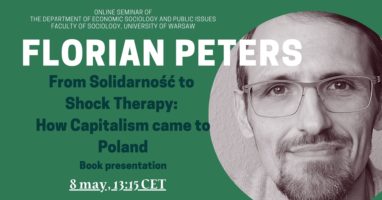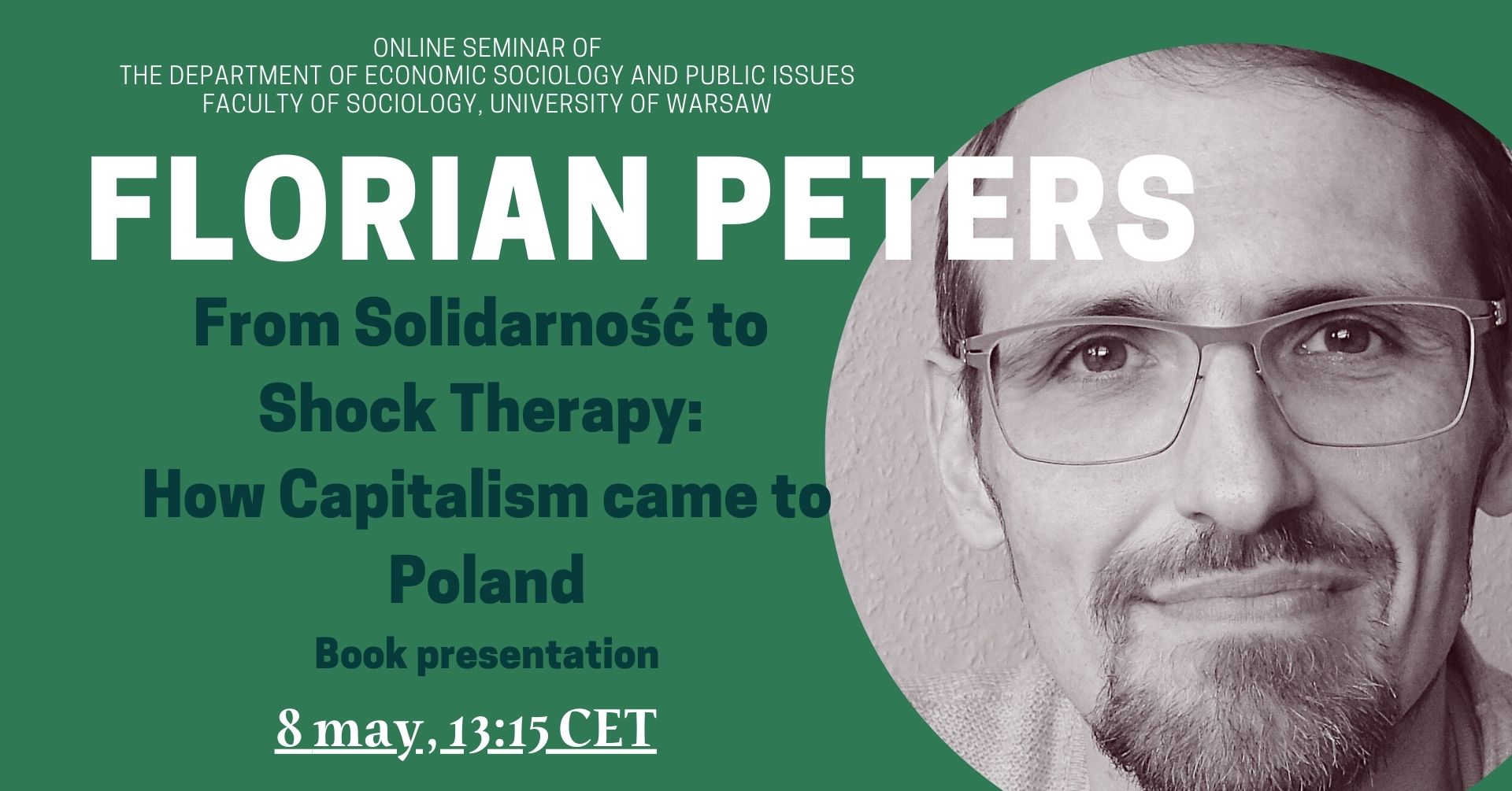Florian Peters, From Solidarność to Shock Therapy: How Capitalism came to Poland | Book discussion

Z radością zapraszamy na otwarte seminarium Katedry Socjologii Ekonomicznej i Spraw Publicznych (Wydział Socjologii UW), na którym porozmawiamy o książce “From Solidarność to Shock Therapy: How Capitalism came to Poland” z jej autorem, Florianem Petersem. Spotkanie odbędzie się 8 maja, o 13:15 w języku angielskim na platformie zoom.

It is our pleasure to invite you to the open online seminar of the Department of Economic Sociology and Public Issues (Faculty of Sociology University of Warsaw) during which we will discuss the book “From Solidarność to Shock Therapy: How Capitalism came to Poland” with its author, Florian Peters. The meeting will be conducted in English. Join us on 8 May, at 1:15pm CET.
In order to participate, please register using the following link:
https://uw-edu-pl.zoom.us/…/tJ0tc…
Abstract:
Poland’s post-socialist transformation started way before the fall of communism. While the Berlin Wall was still standing untouched until late 1989, grassroots capitalism was already in full blow, and radical austerity seriously under way in Poland. But how did the home of the unprecedented Solidarność movement turn into the pioneer of neoliberal shock therapy in Eastern Europe?
In his new book, Florian Peters traces the sweeping changes in economic imaginaries and practices that occurred during the last decade of Polish state socialism, and explains why the Balcerowicz Plan did not come out of the blue, as a sudden dictate by Western advisers. Based on a wide array of archival documents, censored as well as uncensored press, and contemporary sociological research, the book complements the story of economic reform debates among politicians and experts with a focus on ordinary Poles engaging with the economy: small private entrepreneurs, who created new markets in the middle of the dreary 1980s, opposition-minded union activists, who started to adopt market-oriented self-understandings in the underground, and communist functionaries, who discovered the charms of private property… In sum, the book brings out the two faces of economic transformation in Poland: both the swift appropriation of capitalism from below, and the protracted and disenchanting discussions about how to privatise state-owned industry.
Short Bio:
Florian Peters is a historian specialising in the contemporary history of Poland and East Central Europe. After graduating from Christian Albrechts University Kiel, he received his Ph.D. in 2014 from Humboldt University Berlin for a thesis devoted to politics of memory in late socialist Poland. Following positions as a Postdoc researcher at the Leibniz Institute for Contemporary History Munich–Berlin and at European University Viadrina Frankfurt (Oder), he is currently a member of the Interdisciplinary Research Centre (SFB) 294 „Structural Change of Property“ at Friedrich Schiller University Jena, Germany (https://sfb294-eigentum.de/en/members/florian-peters/).